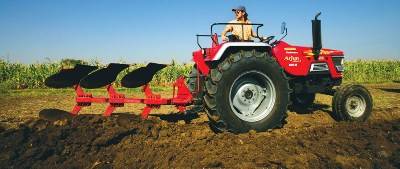PUNE, 27 February 2023: The National Council of Applied Economic Research (NCAER) is one of India’s premier economic policy research think tanks latest report on the “Making India a Global Powerhouse in Farm Machinery Industry” was released by Mrs. Shobha Karandlaje, Minister of State for Agriculture and Farmers' Welfare at Krishi Bhawan on recently.
NCAER has analysed the non-tractor farm machinery industry from both demand and supply side perspectives, brings out the challenges in the sector, and recommends measures & reforms by benchmarking global practices in their Report.
This is an industry with myriad stakeholders. On the one hand, we have manufacturing firms, with a small number of large firms dominating the market. On the other hand, we have small and marginal farmers who consume the products. The problem is that there is a mismatch between the aspirations of small and marginal farmers who rent out equipment, if at all, and producers who want to expand the market.
While India has done well in the production and export of tractors, the market for non-tractor farm machinery is fairly limited, both on the supply and demand sides. The challenge is how to expand the market.
India needs a vision for the next 15 years to convert itself into a production and export hub for non-tractor farm machinery. Policies should address current challenges and act as accelerators to convert India’s dual farm machinery market into an advantage by producing a range of equipment that caters to all types of farmers around the world.
Demand-side challenges need to be addressed by consistent subsidy policy formulation and implementation, long-term credit to small & marginal farmers and strengthening of extension programmes.
India should have a 15-year vision plan to turn India into a farm machinery production hub for the world. The supply-side challenges can be addressed by promoting R&D in non-tractor farm machinery, improving ease of doing business, encouraging exports and FDI, reducing reliance on imported farm machinery, improving & maintaining quality and addressing skilled worker shortages.
Mitul Panchal, Chairperson, AMMA – India said, “We welcome the findings of the report. Some of the recommendations have been a long-standing requirement of the Farm Machinery Industry. The industry today faces huge challenges in competing with cheap imported goods, skilled manpower, inefficient subsidy mechanisms and academia – industry collaboration. The recommendations in this report would go a long way in much needed policy reforms in Farm Machinery space.”
Dr Bornali Bhandari, Professor, NCAER and the lead co-author of the report said that “The Indian farm machinery sector is dominated by tractors. The non-tractors farm machinery sector is rendered uncompetitive in terms of scale, innovation and prices. There is a mismatch between what the organized farm machinery sector produces and the needs of small and marginal Indian farmers. That mismatch needs to be addressed by a range of interventions on both the demand and supply sides for the non-tractor farm machinery to grow into a global hub.”
About AMMA India
The All-India Agricultural Machinery Manufacturers’ Association (AMMA-India) was established in the year 2010 on January 17 at the behest of Department of Agriculture and Farmers Welfare represents the machinery manufacturers of agriculture and allied sectors. ‘AMMA-India’ is committed to growth of Indian Agricultural Machinery Industry in such a way that it is able to assist the farmers in achieving sustainability and profitability through appropriate farm mechanization.




















